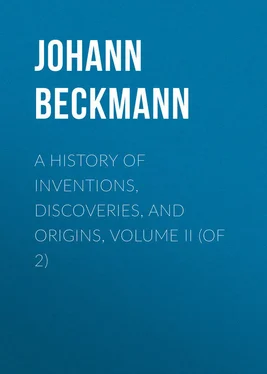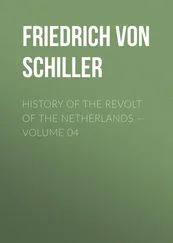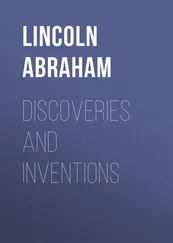Johann Beckmann - A History of Inventions, Discoveries, and Origins, Volume II (of 2)
Здесь есть возможность читать онлайн «Johann Beckmann - A History of Inventions, Discoveries, and Origins, Volume II (of 2)» — ознакомительный отрывок электронной книги совершенно бесплатно, а после прочтения отрывка купить полную версию. В некоторых случаях можно слушать аудио, скачать через торрент в формате fb2 и присутствует краткое содержание. Жанр: foreign_antique, foreign_prose, на английском языке. Описание произведения, (предисловие) а так же отзывы посетителей доступны на портале библиотеки ЛибКат.
- Название:A History of Inventions, Discoveries, and Origins, Volume II (of 2)
- Автор:
- Жанр:
- Год:неизвестен
- ISBN:нет данных
- Рейтинг книги:4 / 5. Голосов: 1
-
Избранное:Добавить в избранное
- Отзывы:
-
Ваша оценка:
- 80
- 1
- 2
- 3
- 4
- 5
A History of Inventions, Discoveries, and Origins, Volume II (of 2): краткое содержание, описание и аннотация
Предлагаем к чтению аннотацию, описание, краткое содержание или предисловие (зависит от того, что написал сам автор книги «A History of Inventions, Discoveries, and Origins, Volume II (of 2)»). Если вы не нашли необходимую информацию о книге — напишите в комментариях, мы постараемся отыскать её.
A History of Inventions, Discoveries, and Origins, Volume II (of 2) — читать онлайн ознакомительный отрывок
Ниже представлен текст книги, разбитый по страницам. Система сохранения места последней прочитанной страницы, позволяет с удобством читать онлайн бесплатно книгу «A History of Inventions, Discoveries, and Origins, Volume II (of 2)», без необходимости каждый раз заново искать на чём Вы остановились. Поставьте закладку, и сможете в любой момент перейти на страницу, на которой закончили чтение.
Интервал:
Закладка:
Carriages for transporting camp-forges and mill-machinery are mentioned by Leonard Fronsperger 134 134 Kriegsbuch, Frankf. 1596, fol. p. 9.
, but he does not say whether complete mills were affixed to them.
MIRRORS 135 135 The works in which this subject has been already treated are the following: – Eberhartus de Weihe, de Speculi origine, usu et abusu. A compilation formed without taste, of which I gave some account in the Article on Chimneys. – Spanhemii Obs. in Callimachi hymn. lavacr. Palladis, p. 615. – Académie des Inscriptions, t. xxiii. p. 140. – Recherches sur les Miroirs des Anciens, par Menard. A short paper, barren of information. – Saggi di Dissertazioni Accad. dell’ Accad. Etrusca dell’ città di Cortona, vii. p. 19: Sopra gli Specchi degli Antichi, del Sig. Cari. A translation from the French, with the figures of some ancient mirrors. It contains an explanation of some passages in Pliny, where he seems to speak of a mirror formed of a ruby, and some conjectures respecting the mirror of Nero. An anonymous member of the Academy, in an appendix, confirms the former, and considers the latter, very properly, as improbable. – Caylus, Recueil d’Antiquités, iii. p. 331, and v. p. 173. A description and figures of ancient mirrors, with some chemical experiments on their composition. – Amusemens Philosophiques. Par le père Bonaventure Abat. Amst. 1763, 8vo, p. 433: Sur l’Antiquité des Mirroirs de Verre. A dissertation worthy of being read on account of the author’s acquaintance with the ancient writers, and his knowledge of technology; but he roves beyond all proof, and employs too much verbosity to decorate his conjectures.
It is highly probable that a limpid brook was the first mirror 136 136 Passages of the poets, where female deities and shepherdesses are represented as contemplating themselves in water instead of a mirror, may be found in the notes to Phædri Fab. i. 4, in the edition of Burmann.
, but we have reason to think that artificial mirrors were made as mankind began to exercise their art and ingenuity on metals and stones. Every solid body, capable of receiving a fine polish, would be sufficient for this purpose; and indeed the oldest mirrors mentioned in history were of metal. Those which occur in Job 137 137 Chap. xxxvii. ver. 18.
are praised on account of their hardness and solidity; and Moses relates 138 138 Exodus, chap. xxxviii. ver. 8.
, that the brazen laver, or washing-basin, was made from the mirrors of the women who had assembled at the door of the tabernacle to present them, and which he caused them to deliver up. As the women appeared in full dress at divine worship, it was necessary for them to have looking-glasses after the Egyptian manner. With these the washing-basins, according to the conjecture of most interpretators, were only ornamented, covered, or perhaps hung round; and Michaelis 139 139 Historia Vitri apud Judæos, in Comment. Societat. Scient. Gotting. iv. p. 330. Having requested Professor Tychsen’s opinion on this subject, I received the following answer: – “You have conjectured very properly that the mirrors of the Israelitish women, mentioned Exod. xxxviii. 8, were not employed for ornamenting or covering the washing-basins, in order that the priests might behold themselves in them; but that they were melted and basins cast of them. The former was a conceit first advanced, if I am not mistaken, by Nicol. de Lyra, in the fourteenth century, and which Michaelis himself adopted in the year 1754; but he afterwards retracted his opinion when he made his translation of the Old Testament at a riper age. In the Hebrew expression there is no ground for it; and mirrors could hardly be placed very conveniently in a basin employed for washing the feet. I must at the same time confess that the word (מראת) which is here supposed to signify a mirror, occurs nowhere else in that sense. Another explanation therefore has been given, by which both the women and mirrors disappear from the passage. It is by a learned Fleming, Hermann Gid. Clement, and may be found in his Dissertatio de Labro Æneo, Groning. 1732, and also in Ugolini Thesaurus, tom. xix. p. 1505. He translates the passage thus: Fecit labrum æneum et operculum ejus æneum cum figuris ornantibus , quæ ornabant ostium tabernaculi. This explanation however is attended with very great difficulties; and as all the old translators and Jewish commentators have here understood mirrors; and as the common translation is perfectly agreeable to the language and circumstances, we ought to believe that Moses, not having copper, melted down the mirrors of his countrywomen and converted them into washing-basins for the priests.”
himself was once of this opinion. But why should we not rather believe that the mirrors were melted and formed into washing-basins? As soon as mankind began to endeavour to make good mirrors of metal, they must have remarked that every kind of metal was not equally proper for that use, and that the best could be obtained only from a mixture of different metals. In the mirrors however which were collected by Moses, the artists had a sufficient stock of speculum metal, and were not under the necessity of making it themselves; and for this reason they could much more easily give to the whole basin a polished surface, in which the priests, when they washed, might survey themselves at full length. At any rate such a basin would not be the only one employed instead of a mirror. Artemidorus 140 140 Oneirocrit. lib. iii. cap. 30. p. 176.
says that he who dreams of viewing himself in a basin, will have a son born to him by his maid. Dreams indeed are generally as groundless as this interpretation; but one can hardly conjecture that Artemidorus would have thought of such a dream, had it not been very common for people to contemplate themselves in a basin. There were formerly a kind of fortune-tellers, who pretended to show in polished basins to the simple and ignorant, what they wished to know 141 141 Joh. Sarisberiensis, i. cap. 12.
. The ancients also had drinking-vessels, the inside of which was cut into mirrors, so disposed that the image of the person who drank from them was seen multiplied 142 142 Plin. lib. xxxiii. cap. 9. Seneca, Quæst. Nat. i. cap. 5.
. Vopiscus mentions, among the valuable presents of Valerian to the emperor Probus, when a tribune, a silver cup of great weight, which was covered on the inside with mirrors of this sort 143 143 Vita Probi, cap. iv. p. 926: “Patinam argenteam librarum decem specillatam.” Salmasius chooses rather to read specellatam . I am inclined to think that this word ought to be read in Suetonius instead of speculatum , where he speaks of an apartment which Horace seems to have been fond of. That historian, in his Life of Horace, says, “Ad res venereas intemperantior traditur: nam speculato cubiculo scorta dicitur habuisse disposita, ut quocunque respexisset, ibi ei imago coitus referretur.” Lessing, who in his Miscellanies (Vermischten Schriften, Berlin 1784, 12mo, iii. p. 205) endeavours to vindicate the poet from this aspersion, considers the expression speculatum cubiculum , if translated an apartment lined with mirrors , as contrary to the Latin idiom, and thinks therefore that the whole passage is a forgery. Baxter also before said that this anecdote had been inserted by some malicious impostor. This I will not venture to contradict, but I am of opinion that specillatum or specellatum cubiculum is at any rate as much agreeable to the Roman idiom as patina specillata . This expression Salmasius and Casaubon have justified by similar phrases, such as opera filicata , tesselata , hederata , &c. The chamber in which Claudian makes Venus ornament herself, and be overcome by the persuasion of Cupid, was also covered over with mirrors, so that whichever way her eyes turned, she could see her own image. Did Claudian imagine that this goddess knew how to employ such an apartment, not only for dressing, but even after she was undressed, as well as Horace? I have seen at a certain court, a bed entirely covered in the inside with mirrors.
.
Интервал:
Закладка:
Похожие книги на «A History of Inventions, Discoveries, and Origins, Volume II (of 2)»
Представляем Вашему вниманию похожие книги на «A History of Inventions, Discoveries, and Origins, Volume II (of 2)» списком для выбора. Мы отобрали схожую по названию и смыслу литературу в надежде предоставить читателям больше вариантов отыскать новые, интересные, ещё непрочитанные произведения.
Обсуждение, отзывы о книге «A History of Inventions, Discoveries, and Origins, Volume II (of 2)» и просто собственные мнения читателей. Оставьте ваши комментарии, напишите, что Вы думаете о произведении, его смысле или главных героях. Укажите что конкретно понравилось, а что нет, и почему Вы так считаете.












